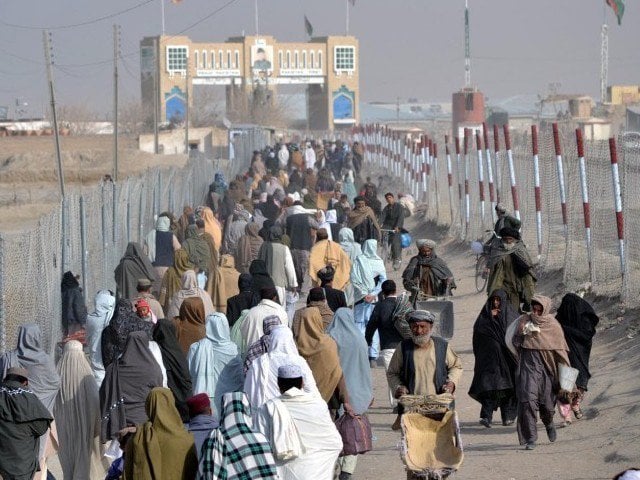Pakistan government’s decision on the Afghan Repatriation issue asserts the need to address national security, legal frameworks, and socio-economic challenges. With a significant Afghan population in the country, exemptions based on registration status add layers of complexity to the policy. As civil rights activists and legal experts engage in discussions, the intricacies of this decision underscore the delicate balance between humanitarian considerations, international obligations, and safeguarding Pakistan’s interests.
Former Prime Minister Imran Khan’s recent statement on the issue of expulsion of illegal immigrants appears more as a political stance, detached from the ground reality.
Around 4 million Afghans reside in Pakistan, as highlighted in a press conference by former National Security Adviser, Dr. Moeed Yusuf, during Khan’s tenure. The policy justifying the repatriation of Afghan citizens was discussed, exempting 1.5 million POR registered Afghans, 886,000 ACC registered individuals, and 450,000 UNHCR registered migrants heading to third countries. These nuances reveal a more complex situation than the political narrative suggests, indicating the need for a comprehensive understanding of the challenges and policies in place, as well as taking the steps to prevent damages to national interest to a level where the damage can not be undone by mere policies alone.
Despite resistance from civil rights activists and significant persons like as Mr. Farhatullah Babar, the government’s response to writ petitions is based on legal and constitutional frameworks. The Foreigners Act of 1949 gives the Federal Government the right to declare individuals as foreigners, distinguishing between documented Afghan nationals and unlawful immigrants. The Pakistan Citizenship Act of 1951 gives the government authority in giving certificates of naturalization, a process that does not apply to illegal immigrants. Moreover, the government’s decision aligns with the absence of laws on asylum/refugee status in Pakistan and the non-recognition of illegal immigrants as refugees by the UNHCR.
Pakistan’s non-signatory status to the Geneva Convention on Refugees, 1951, further underscores its discretion in hosting refugees and handling illegal foreigners.
The complexities of the situation need a sophisticated response that recognizes the reciprocal nature of Pakistan-Afghanistan fraternal relations. While former Prime Minister Imran Khan’s emphasis on treating Afghan refugees with dignity and respect is understandable, a more balanced approach is required which keeps in view ground realities impacting the national security of Pakistan. Pakistan must combine its Islamic commitments to give refuge with its responsibility to its own people’s welfare, especially when faced with socioeconomic issues affecting over 47 million individuals living below the poverty line. The repatriation decision, driven by concerns for national security, economic limits, and the intricate dynamics of brotherly relationships, stands as a pragmatic imperative. It is not an expression of insensitivity but rather a recognition of the threats that Pakistan faces due to illegal and undocumented immigrants. A country grappling with internal economic challenges cannot indefinitely serve as a sanctuary for refugees fleeing conflict. Finally, the decision to repatriate Afghan refugees is consistent with the need to protect national interests and the lives of Pakistani people. A collective effort is required to navigate the complexities of the situation and prevent repeating prior mistakes.
Your go-to editorial hub for insightful perspectives and informed analysis on pressing policy issues, both regionally and globally




